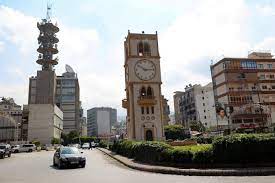Khaled Abou Zahr
Sectarian discussions are something I despise because they are fruitless and aimless. Yet, the current state of Lebanon and its catastrophic financial situation is charged with sectarianism and it needs to be addressed. I will first state that I was fortunate as an emigrant to have Lebanese friends in France without ever knowing or asking what their confession was.
To this day, I do not know and this ignorance is bliss. Friends are friends. I was also fortunate not to live through the horrible years of civil war, despite the fact that threats and bombs from the Syrian regime and its partners followed my late father to Europe. This week’s daylight saving episode was telling regarding the high risks the country is facing.
In a split second, the political and media scene in Lebanon shifted from being described as Sunni versus Shiite into Muslim versus Christian. There is a lot to say. In fact, just as the protests in France are not only about pensions and the age of retirement, in Lebanon it is not just a question of when to apply daylight saving time. In France, the ongoing burst of protests began following the government’s use of Article 49.3 of the French Constitution to pass its pension reforms. This was interpreted as a unilateral decision by the president. However, in reality, Article 49.3 is not a unilateral decision as it allows the parliament to put the entire government to a no-confidence vote, which it narrowly survived. Yet, the accumulation of COVID-19, war in Europe and inflation have pushed French citizens to feel like they are losing their voice or control over their country.
Despite the fact that the decision was unilateral in Lebanon, there are surely similarities with the general feeling of an important part of the country’s population. Here too, it is much more than just a question of daylight saving time, it is an accumulation of factors. It is about a fear of the country vanishing, as well as the end of the specificity of Lebanon within the Middle East. It is a strong message from the Christian community. Many have described the initial decision to delay daylight saving, which was taken by the caretaker prime minister and the speaker of the parliament, who are Sunni and Shiite respectively, as clumsy. They have similarly described the way the Christian political parties and media reacted. These were mistakes that escalated quickly. I believe one should pay attention to small details, as they reveal more about the direction of the country than anything else.
As Lebanon is moving toward total decrepitude, this episode should be seen as a warning sign. In my view, the Christian community is clearly stating that it does not accept and does not wish to be an add-on or a second-level voice in the politics of the country. Indeed, within the past decade, the politics of Lebanon have been framed by the Sunni-Shiite divide. This has meant that Christians have had to align with either one or the other to get their voices heard. The unified reaction to the daylight saving decision was a declaration against this situation. And it is understandable.
Why should the Christian community or any other community for that matter have to align with another in order to get its voice heard? No single community in Lebanon should be in the category of second-class political decision-makers. In Iraq, the Sunni population has been transformed into such a class, while in Lebanon too the Sunnis are a weakened political force. There is an urgent need to step away from this type of confessional politics. A strong Lebanon is a Lebanon where all the communities are protected and have their future in their own hands. If there is fear of the other or a lack of representation, this cannot work. Politicians need to be held accountable and responsible. Whether we like it or not, this system encourages fear-mongering and populism instead of the principle of serving citizens. A clear example is how Gebran Bassil this week made front-page news in all the Christian media. In a flash, he went from pariah to a cleaned-up political voice.
This is why we should pay attention to little details. They have a tendency to blow up and bring chaos. And so, whether actions and reactions are considered clumsy or futile, they are a sign of dangerous times. Moreover, this incident has shown that the alliances and the political system are nothing but a masquerade. It shows that Lebanon is not a democracy but a confessional system sprinkled with Western democratic displays. And so, it is not a surprise that the reaction by Lebanese Christians to this failed decision – and for the first time in large numbers – was to put forward the need for a federation. I have stated it often and agree that federalism is the best solution for a new political system.
This is the only way not to have any community feel marginalized while shifting toward accountability. Yet, this transformation must be real and not cosmetic, like it has been done in Iraq, where it is essentially a centralized system controlled by one single confessional group. Thus, this is a warning that Lebanon is a split second away from clumsily spiraling once again into violent military confrontation. This risk should be taken into account, especially as the situation in northern Syria is still fluid and unstable. Time is of the essence to save the country.







